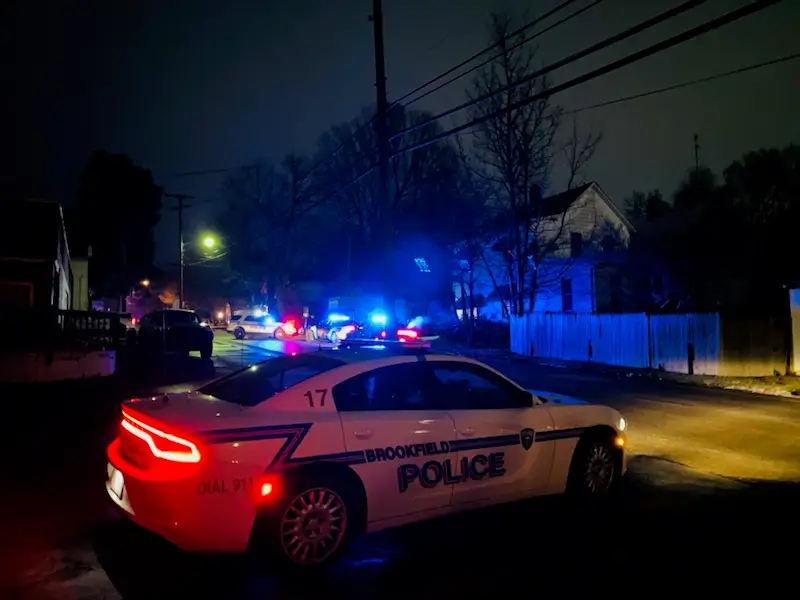
-
[email protected]
E-mail Us
-
7087 West Blvd, #8, Youngstown, Ohio 44512
Open by Appointment Only
(888) 341-6960
Contact our 24-hour customer care team
(888) 341-6960
Contact our 24-hour customer care team

Dec
Tragic Incident in Masury, Ohio: Examining Systemic Failures and the Need for Domestic Violence Reform
The quiet and close-knit town of Masury, Ohio, was devastated on Friday, December 20, 2024, by an unimaginable tragedy that unfolded over several harrowing hours on Lucy Street. The untimely death of Jane Payton, a hardworking mother and devoted resident, who fell victim to domestic violence, culminated in a standoff that starkly exposed the heartbreaking limitations of a system designed to protect its citizens. Andrew Reedy, hailing from Hermitage, Pennsylvania, now faces charges of first-degree murder. This devastating incident not only brings to light the serious shortcomings in legal processes but also raises profound questions about the support systems in place for victims of domestic abuse.
The day began innocuously, but tranquility quickly descended into chaos. Initial reports of a standoff at 545 Lucy Street emerged around 11:00 a.m., rapidly escalating into a desperate plea for help by 1:46 p.m. A hostage negotiator’s voice, amplified over a loudspeaker, echoed with desperation: “Help me help you.” This chilling cry for aid became the harrowing soundtrack of the unfolding tragedy. The victim’s family, gathered nearby, watched helplessly as the minutes turned into hours, their anxiety palpable and their hopes waning.
Jane Payton, a devoted mother and tireless worker who had recently taken on a third job to support her family, was described by her nephew, Alex Honel, as a kind-hearted and industrious woman. This portrait of a loving mother, tragically cut short, stands in stark contrast to the actions of Andrew Reedy, her former tenant who had been previously evicted from her residence. Honel’s account paints a grim picture of a man struggling with substance abuse—a man who, despite prior arrests and court appearances, continued to flout the law and endanger Jane’s life. Reedy’s history of missed court dates and ongoing substance abuse, even while on probation, underscores a critical failure within the system. The fact that he was taken to court at 9:30 a.m. on the day of the incident, only to return to Jane’s home later that day, highlights a glaring gap in the protective measures afforded to those seeking legal recourse against domestic abusers.
The standoff saw a substantial law enforcement response, with multiple agencies converging on the scene. The presence of a sniper, the tense negotiations, and the eventual confirmation of Jane’s death paint a grim picture of escalating violence. While details surrounding Reedy’s reported attempt to turn the gun on himself remain unclear, the tragedy is irrefutable. The family’s grief is compounded by the profound sense that the system failed to adequately protect their loved one. Honel’s poignant statement, “The system could have done better,” encapsulates the collective sentiment of a community now grappling with the aftermath of this preventable tragedy.
The events on Lucy Street serve as a stark reminder of the pervasive threat of domestic violence and the urgent need for improved support systems and protective measures for victims. Although the legal process will now run its course, the deeper issue remains: How can we prevent future tragedies by strengthening the mechanisms designed to protect vulnerable individuals from those who would harm them? The death of Jane Payton in Masury, Ohio, should not become just another statistic; it should be a catalyst for meaningful reform and a renewed commitment to ensuring the safety and well-being of all citizens.
Moving forward, there must be a concerted effort to address and rectify the systemic issues that allowed such a tragedy to occur. This involves not only legal reforms but also a significant investment in community-based support systems. Creating robust networks of social services, increasing funding for domestic violence shelters, offering counseling and rehabilitation programs for abusers, and raising public awareness about the signs of domestic violence are crucial steps. Law enforcement agencies must also receive specialized training to handle domestic violence situations more effectively, ensuring that victims are protected and perpetrators are held accountable.
Furthermore, addressing the underlying social and economic factors that contribute to criminal behavior is paramount for achieving lasting security improvements. Factors such as poverty, limited economic opportunities, and inadequate access to education and essential resources often create environments conducive to criminal activity. Tackling these root causes requires a multifaceted strategy encompassing social services, economic development initiatives, and community-based programs designed to foster positive change and create opportunities for all residents. Programs focusing on youth engagement, vocational training, and educational advancement can significantly reduce crime rates by providing alternative pathways for individuals at risk.
Securing Masury, and towns like it, demands a comprehensive and integrated approach. While professional security services and law enforcement agencies offer invaluable resources—highly trained personnel and advanced technology—creating a truly secure environment requires a broader strategy. This strategy must include robust community engagement, strong partnerships with law enforcement, and a concerted effort to address the underlying social and economic factors that fuel insecurity. Through this collaborative and holistic approach, Masury can cultivate a safer, more prosperous future for all its residents. The tragic death of Jane Payton must serve as a powerful reminder and a call to action, driving efforts to ensure that no one else falls victim to the systemic failures that allow such tragedies to occur. For more information on support services or to get involved in community efforts, please contact local domestic violence support organizations and law enforcement agencies.
-
Tags
- a victim of domestic violence Armed officers brookfield Converged on scene culminated a standoff that exposed the heartbreaking limitations of a system designed to protect its citizens. Andrew Reedy faces charges of first-degree murder Gunfire hubbard Hubbard Township Incident incident involving unwanted person and gunfire in Masury Law enforcement Limited details limited details on Masury Ohio incident Lucy Street Lucy Street road closure due to police activity Masury multi-agency police response in Masury Ohio of Hermitage officers aiming weapons at residence in Masury officers from Brookfield Hubbard Hubbard Township Vienna Ohio officers from Sharon Pennsylvania ohio Ongoing situation ongoing standoff in Masury Ohio Pennsylvania police convergence on Lucy Street Masury Ohio Police departments Road closure Sharon Significant police response significant police response in Masury Ohio SWAT teams SWAT teams on site in Masury Ohio Tense situation tense situation on Lucy Street in Masury Ohio The quiet town of Masury Unwanted person vienna was shattered on Friday by a tragedy that unfolded over several harrowing hours on Lucy Street. The death of a hardworking mother





